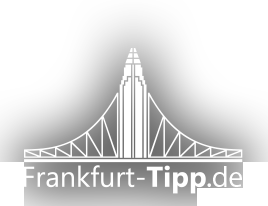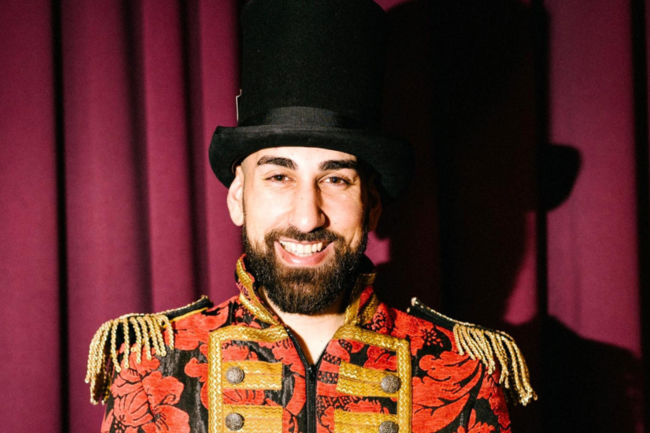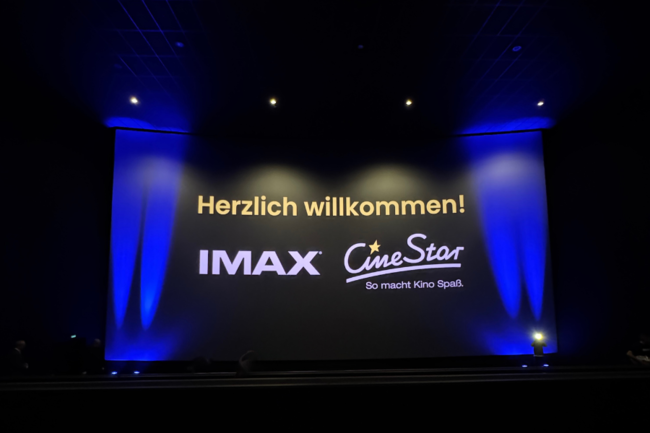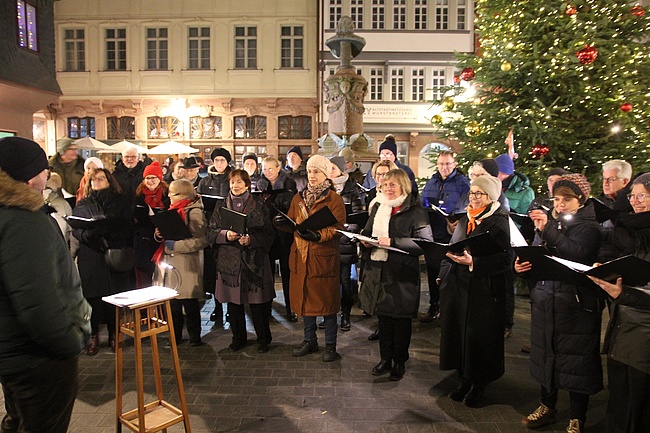Big station in the Alte Oper: On Friday, the winners of the Hessian Film and Cinema Award were honored here. For this purpose, many celebrities from culture and politics came to the Alte Oper. The following artists were honored at the grand gala:
The award winners:
I HESSIAN FILM AND CINEMA AWARD
JURY HESSIAN FILM AWARD, DREWBOOK AWARD, HIGH SCHOOL FILM AWARD
.Hans Joachim Mendig, Managing Director HessenFilm und Medien (Jury Chair) Dennenesch Zoudé, Actress Christian Bührmann, Hessian Ministry of Science and Art Prof. Wilhelm Weber, Dean of the Department of Media, Darmstadt University of Applied Sciences Peter Zingler, screenwriter
HESSIAN FILM AWARD: SPIELFILM
Award winner: FRITZ LANG
Director: Gordian Maugg
Award money: 25.000 Euro, nomination money: 5.000 Euro
Feature film, black and white, 104 minutes, Germany 2015
A production of Belle Epoque Films GmbH in co-production with Gordian Maugg Film- und Fernsehproduktionen in association with ZDF and arte
Book: Alexander Häusser, Gordian Maugg, producer: Nicole Ringhut, camera: Lutz Reitemeier, Moritz Anton, sound: Peter Schumacher, editing: Florentine Bruck, Olivia Retzer, music: Tobias Wagner
Actors: Heino Ferch, Thomas Thieme, Samuel Finzi, Johanna Gastdorf, Lisa Charlotte Friedrich
Jury statement:
A feature film about the legendary director Fritz Lang - considering his legendary talent and his thoroughly dramatic life story during politically and socially drastically changing times, this is no easy undertaking. It takes courage and experience to dare to do it.
Gordian Maugg ("The Olympic Summer") has dared to do it. Always in search of the perfect cinematic form, he sees it in the fusion of acting scenes and fictional as well as documentary archive material. He skilfully combines biography with narrative adaptation of Lang's "handwriting". The result is a moving portrait of Fritz Lang, focusing on the questions of good and evil, the inner demon of everyone and guilt that drove him throughout his life.
Based on real people and actual events, the film is a gripping historical document of the times that Gordian Maugg brings to life with fictional scenes and emotional density. In search of suitable material for his first sound film "M", the star director of the 1920s and 1930s, embodied by Heino Ferch, travels from Berlin to Düsseldorf to learn the investigative methods of a respected criminal council in the case of the brutal serial killer Kürten. He is given the unique opportunity to gain insight into the killer's psyche in a Tête-à-Tête and in the process gets caught up in a whirlpool of personally unprocessed memories himself. Like Fritz Lang's stories once did, the film transports us into deeply irritating human abysses, also against the backdrop of incipient fascism.
This is realized cinematically at a high level and, in the style of Lang's films, in an atmospherically fitting black-and-white look: The result is an aesthetically successful collage of fictional acting scenes and historical archive footage. Ultimately, it is the remarkable editing which, alongside the historically resonant performance of the acting ensemble, narrates this biographical essay. Gordian Maugg's film about Fritz Lang is a furious work of art about a great, not uncontroversial artist.
That is why the jury awards "Fritz Lang" with the Hessian Feature Film Award 2016 in the category feature film.
HESSIAN FILM AWARD: DOCUMENTARY FILM
Winner: GHOSTLAND - THE VIEW OF THE JU/'HOANSI<x><N</x>Directed by: Simon Stadler, Catenia Lermer<x><N</x>Award money: 15.000 Euro, Nomination money: 5.000 Euro
Documentary, color, 85 minutes, Germany 2016
A production of Cameleon Film
Book: without, Producer: Simon Stadler, Cinematography: Simon Stadler, Sound: Catenia Lermer, Editing: Andre Broecher, Markus Frohnhöfer. Music: Matthias Raue
Participants: Ju/'Hoansi (San) from Namibia
Jury statement:
Among the submissions for the Hessian Film Award were individual films that attempt to answer questions such as "What is home?" and "Where do I want to live?".
"Ghostland - the view of the Ju/'Hoansi" by Simon Stadler and Catenia Lermer addresses this topic in a refreshingly original way. The viewer is taken on a journey to Europe, a modern world unknown to them, by four inhabitants of the Kalahari, the Ju/'Hoansi-San, one of the oldest hunter-gatherer cultures.
The palpably lively nature of the main characters, who here go from tourist attraction to tourist themselves, as well as their explorer-like curiosity, quickly find the audience's attention and don't let go until the end. With their touching authenticity, they hold a mirror up to it without the film wanting to be instructive.
The directors, who live in Frankfurt, travelled to the African desert for their documentary without a big budget and as part of a three-man team. Simon Stadler, who as director was also responsible for the camera, delivers unadulterated, beautiful images of the Ju/'Hoansi's life in the Kalahari Desert, their impressions and experiences in the modern world, and of their thoughts and feelings, which they describe in interview sequences. The Ju/'Hoansi-San's realisation that life in the homeland is still the most beautiful has a lasting effect on the viewer and encourages reflection. That is why the jury awards "Ghostland - the view of the Ju/'Hoansi" with the Hessian Documentary Film Award 2016 in the documentary category.
HESSIAN FILM AWARD: SHORT FILM
Winner: SHIPS PASSING IN THE NIGHT
Directed by Elisabeth Zwimpfer
Prize money: 5.000 Euro
Short film, animated film, colour, 12 minutes, Germany 2015
Book, producer, animation, editing: Elisabeth Zwimpfer, sound: Tobias Böhm, Christian Wittmoser, Music: Kanté Manfila & Balla Kalla, Julia Kotowski
Voices: Napo Oubo-Gbati, Maike Koller, Girmay Asefaw, Gaetano Maruccia, Edgard Sueyem, Freweini Yauhannes, Helen Alem, Habtom Gebremichal, Nadim Natour among others.
Jury Justification:
"Like Ships Passing in the Night" is an English phrase that symbolizes a brief, chance encounter between two people that may never return.
The short animated film "Ships Passing in the Night" by young filmmaker Elisabeth Zwimpfer tells this story and enriches it with the components of fear, flight, arbitrariness and affection (love): the fisherman Pombalo flees from Africa across the sea when his nets remain empty and meets Maleika on the European coast, where she is collecting flotsam. They are like ships that meet briefly and lose each other again in the vastness.
The basis for this poetic short film are drawings by African refugees whom the director had interviewed during her research. She transformed these drawings into an expressive and papercut-like cartoon technique, deliberately avoiding a contemporary and pleasing graphic style. Her imagery is raw and angular, areas consist of earthy hues and textures that remain simplified and very textured throughout.
The very direct tone, voicing, background noise and melodic music enhance the aesthetic atmosphere. It is this aesthetic in combination with the current topic that makes the short film so direct and honest in its effect - and unique.
That is why the jury awards "Ships passing in the Night" with the Hessian Short Film Award 2016 in the category short film.
HESSIAN HIGH SCHOOL FILM AWARD
Winner: NÄCHSTENLIEBE
Director: Simon Pilarski
Prize money: 7.500 Euro
Feature film, colour, 22 minutes, Germany 2015
Book, production, editing, production design: Simon Pilarski, production management: Johannes Höffler, camera: Nico Nonne, sound: Peter Lange, music: Sergios Roth
Actors: Rainer Wagner, Oskar Keymer, Alexander Bettendorf, Christoph Stein, Johannes Schedl, Frederic Heidorn, Christian Stotz, Michael Altmann, Ute Ehrenfels, Sana Guillera
Jury Statement:
"Against the children of thy people thou shalt not take vengeance, nor bear a grudge against them. You shall love your neighbor as yourself." (Lev 19:18)
This is how the commandment "love your neighbor" is described in the Torah, which Simon Pilarski, a graduate of the Film Production Department at Darmstadt University of Applied Sciences, makes the subject of his graduation film. In doing so, he shows that charity is sometimes misunderstood and, in the worst cases, abused.
His 22-minute short film sets in 1889. The young miller's son Lukas, whose strict father forbids him his most ardent wish to leave the village for just one day, confides in the priest. From him he learns of a secret monastery in the mountains. Years later, Luke, now a young man, sets off there with three companions. They soon realize that this is a place full of pitfalls and dangers, and Luke is forced to face a terrible demon. Even as a grown man he can't get rid of it.
The young director, who was born in Wiesbaden in 1990, addresses the subject of child abuse in the church with small, short, partly abstract hints without depicting the actual act. This gives the short film exciting moments, which are supported by well-chosen locations, an overall dark and cold atmosphere and very professional editing. The complexity of the subject is taken up in the three narrative levels of the plot, and here too he succeeds very well in the cinematic transitions and the linking of content despite the protagonist's multiple casting. Finally, Simon Pilarski gives his film the crowning touch with music perfectly matched to the scenes, so that the viewer is gripped to the skin.
That is why the jury awards "Nächstenliebe" the Hessian University Film Award 2016 in the category of university film.
HESSIAN DREHBOOK AWARD
Winner: LORD KLEE AND LORD FIELD
Author: Michel Bergmann
Prize money: 7.500 Euro
Laudatio: Feo Aladag
Jury statement:
If, while reading a screenplay, one already has the finished film in mind and is looking forward to seeing the cinematic realization on the big screen soon, then it is probably a very successful screenplay. That the author Michel Bergmann has mastered writing is indisputable, and that he was able to convince the jury with his screenplay "Herr Klee und Herr Feld" is perhaps also due to the fact that he already thrilled the reading public with his novel of the same name, which was published in 2013 and concludes his trilogy about Jewish life in Germany. So what's the secret?
It's the endearing characters and the many conflicting motives with which the story is peppered and which the author portrays with his talent for detailed observation: The two main characters, a professor emeritus of social psychology and a penniless actor, both past sixty, spend their twilight years together in a villa in Frankfurt's West End. The different characters are in a state of constant conflict, which is further fuelled when a young, sympathetic woman unexpectedly enters their lives. Here not only young and old meet, but Arab and Jew - the noble Frankfurt quarter becomes the scene of the Middle East conflict. The dialogues between the protagonists are lively and entertaining, while melancholy moments, for example when the two gentlemen become aware of the inexorability of age, are not lacking.
Despite all the contrasts, the characters have a wonderful time, because one thing unites them and makes them forget all boundaries: music. The fact that the conflict-laden story has a happy ending at the end should please the arthouse audience 40+, because who doesn't like to leave the cinema with a smile on their lips and a pleasant feeling in their stomach.
Michel Bergman, who is Jewish himself and spent his youth in Frankfurt, processes a lot of his own experiences and you can see that in the story. With a lot of heart and soul he has delivered a script that is convincing both in form and content and was able to convince the jury all along the way. After the reading audience, he should have an enthusiastic film audience.
That is why the jury awarded "Herr Klee und Herr Feld" with the Hessian Screenplay Award 2016 in the category screenplay.
The jury for the Hessian Cinema Culture Awards
The Hessian cinema landscape is characterized by diversity: In the urban centers can be found student initiatives, collectively run cinema initiatives, classic arthouse centers, program cinemas, film museums or municipal cinemas. The state capital in particular has two great players that complement each other wonderfully. In the countryside, cinemas in Lauterbach, Lich or Schlüchtern manage to be a real cultural magnet with their programs and the heart of their place. While cinemas in the cities face challenges such as competition from other leisure and cultural facilities, the rural cinemas are surprisingly successful in battling with a supposed locational disadvantage. With great ingenuity and the courage to try something new and different, they prove that it is possible to attract visitors to the cinema with exciting ideas. Committed cinema makers successfully think about finding their audience and often rely on cooperations and the integration of guest performances. The jury had a lot of fun reading the programmes, which showed a large and interesting spectrum of both commercial and non-commercial cinemas.
In total, the jury will award twelve cinema culture prizes for commercial cinemas and eight cinema culture prizes for non-commercial cinemas and cinema initiatives this year.
In doing so, the jury awards a top prize to a non-commercial cinema that functions through regular re-formation and outstanding work as a collective over several generations. Unlike previous years, the Commercial Cinemas category honors four cinemas within a top award group, all of which overcome the unique challenges of running a cinema in remarkable ways.
Jury statement Hessian Cinema Culture Award for Commercial Cinemas:
The KINO TRAUMSTERN in Lich, the CAPITOL KINO in Witzenhausen, the LICHTSPIELHAUS in Lauterbach and the MAL SEH'N in Frankfurt have convinced the jury with their bulging programmes and receive a top prize. All four cinemas, regardless of their environment, are doing remarkable work and demonstrating the courage to try something new. Digitisation offers new possibilities, which they use imaginatively. Films can be scheduled earlier, original versions can easily run on »OmU«days. Nevertheless, they keep analogue projectors for festivals or classics.
The MAL SEH'N Kino in Frankfurt regularly shows films in original language with or without subtitles. This is still a special feature and definitely worth supporting. In addition, they now also show films with audio description.
The KINO TRAUMSTERN knows how to enrich its international program with appealing additional events and film guests. There are thematically programmed supporting films and animated films made by children, to name just a few of the great program ideas. The CAPITOL KINO in Witzenhausen had over 250 different films in its programme and, like the LICHTSPIELHAUS Lauterbach, quite naturally and successfully places film art alongside mainstream. Both cinemas are characterised by a high level of personal commitment on the part of the operators and were rewarded with an increase in visitors last year.
The jury is enthusiastic about the many great ideas and the loving programming. The collaborations between the cinemas are remarkable and bring new exchanges and input. This passionate and consistent commitment of the cinema operators is noticeable to the audience and is also positively perceived in the press.
Jury statement Hessian Cinema Culture Award for non-commercial cinemas and cinema initiatives: Since 1974, the municipal cinema Weiterstadt is the only cinema on site and has managed for decades to reach and inspire a diverse audience from young to old. The finely tuned design of the programme is done collectively. In addition to current arthouse films, the cinema makers also focus on short films, classics and documentaries. They involve children and young people in the programming in a remarkable way. Film series, festivals and special events with guests are also on the program, often presented in elaborate program booklets, sometimes even in several languages. The jury finds this excellent all round, so it should be highlighted here, alongside the excellent work of the other non-commercial cinemas and cinema initiatives once in particular.
II HESSIAN TELEVISION AWARD
JURY HESSIAN TELEVISION AWARD:
Liane Jessen (Head of Television Drama, Hessischer Rundfunk)
Herbert Knaup (Actor)
David Ungureit (Screenwriter)
Tanja Ziegler (Producer)
Christel Schmidt (Jury Chair, Co-Managing Director Hessische Filmförderung - Hessian Broadcasting Film Fund)
HESSISCHER FERNSEHPREIS: BEST ACTOR
award winner: MARGARITA BROICH
award money: undoped
Awarded for her roles in
TATORT: WENDEHAMMER, director: Markus Imboden, 90 minutes, Germany 2016
AUFBRUCH, directed by Hermine Huntgeburth, 90 minutes, Germany 2015
Jury Statement:
Margarita Broich is a phenomenon. A quick-change artist who doesn't need complicated hairstyle creations to become someone else. As the haggardly proletarian Catholic mother in ‚Departure', the stink of the early 1960s literally creeps out of her every pore. She speaks with her mouth full and in full Rhenish dialect, which she has virtually assimilated.
And then she shines as Tatort commissioner Anna Janneke, dancing seductively and femininely, charming and confident, tricking even a ten-year-old with a surprising goal kick. Always there is this stunning physicality with which she shapes each character into a solitaire that fits no pigeonhole.
HESSISCHER FERNSEHPREIS: BEST ACTOR
Award winner: Heino Ferch
Award money: undoped
Awarded for his role in ALLMEN UND DIE LIBELLEN
Directed by: Thomas Berger, 88 minutes, Germany 2016
Jury statement:
Johann Friedrich von Allmen is a down-and-out bon vivant, likeable snob, ladies' man, always charming, who handles even the greatest dangers with self-assurance and cool. Heino Ferch embodies this Allmen with such stylistic confidence and recognizable joy in acting that from the very first moment one follows him with fascination and relish in every villainy and is always on his side. While at the beginning one waits for the moment when the character tips over and takes off his mask, one is glad in the further course of the film that this moment does not occur. Heino Ferch plays with grandeur and shows with every gesture, every look that style is not a question of wealth, but depends solely on attitude. At the side of the congenial Samuel Finzi, Heino Ferch succeeds in creating a character of international stature that seems to hover a tiny bit above the ground and turns attitude into the very best entertainment.
III HESSIAN MINISTER PRESIDENT'S HONORARY AWARD
Award winner: Klaus Maria Brandauer
Award money: undoped
Laudatio: István Szabó
Minister President Volker Bouffier on his decision:
"Klaus Maria Brandauer is one of the outstanding German-speaking theater and film actors of the last 35 years. He calls an astonishing acting diversity his own, which he combines with an engaging presence with which he delights his international audience. Already a giant at his artistic home, Vienna's Burgtheater, he put his stamp on cinema overnight with "Mephisto", allowing non-theatergoers to enjoy his overwhelming artistry. Major international roles follow, but Brandauer is always drawn back to the theatre - as an actor but also as a director. Not to forget his productions of Berthold Brecht's "Dreigroschen-oper" or Richard Wagner's opera "Lohengrin". Klaus Maria Brandauer has created a total work of art before which I bow deeply."












